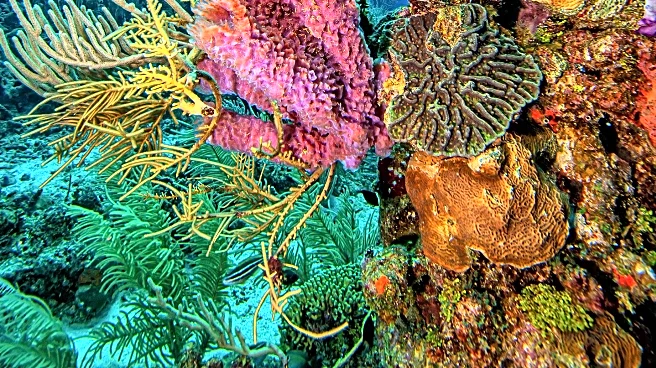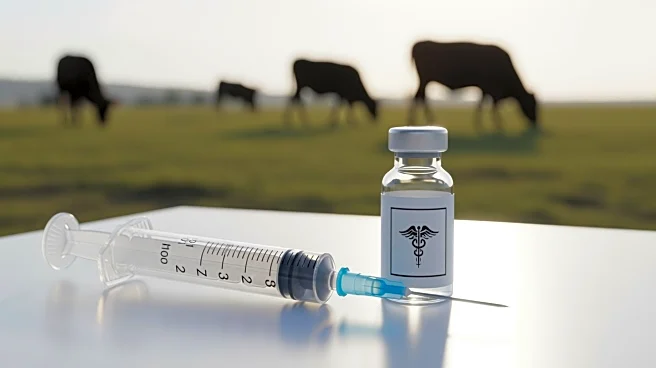What's Happening?
Elvira Alvarado, a Colombian marine biologist, is spearheading efforts to restore Colombia's endangered coral reefs through in-vitro fertilization (IVF). At 70, Alvarado continues to dive and research, training a new generation of scientists. Her work focuses on reproducing coral to combat the decline caused by diseases, pollution, and rising ocean temperatures. Since the 1970s, over half of the Caribbean's coral has died. Alvarado's team collects coral eggs and sperm, fertilizes them in a lab, and transplants them to existing reefs. This technique, pioneered by Australian scientist Peter Harrison, aims to regenerate coral faster than they die, using genetic material from more heat-resistant coral.
Why It's Important?
Coral reefs are vital ecosystems that support marine biodiversity, protect shorelines, and boost tourism. The decline of these reefs poses a significant threat to marine life and coastal communities. Alvarado's work is crucial in mitigating these impacts by fostering the growth of hardier coral varieties. Her efforts not only aim to preserve the ecological balance but also inspire a new generation of marine biologists, particularly women, to continue this essential work. The success of these restoration projects could serve as a model for similar initiatives worldwide, highlighting the importance of scientific intervention in environmental conservation.
What's Next?
Alvarado's team will continue their work on San Andrés, focusing on collecting and fertilizing coral during the annual spawning period. The goal is to establish more resilient coral reefs that can withstand warming conditions. As climate change and diseases like Stony Coral Tissue Loss Disease persist, the need for such restoration efforts becomes increasingly urgent. The continuation of this work depends on ongoing support and training of new scientists, ensuring that Alvarado's legacy endures. The broader scientific community may also look to replicate these methods in other regions facing similar challenges.
Beyond the Headlines
Alvarado's dedication to coral restoration underscores the broader ethical responsibility of preserving natural ecosystems in the face of human-induced climate change. Her work highlights the intersection of science, education, and environmental stewardship, emphasizing the role of women in marine biology. The cultural impact of her mentorship and the empowerment of young female scientists contribute to a more inclusive and diverse scientific community. This initiative also raises awareness about the critical state of coral reefs and the urgent need for global action to address environmental degradation.








